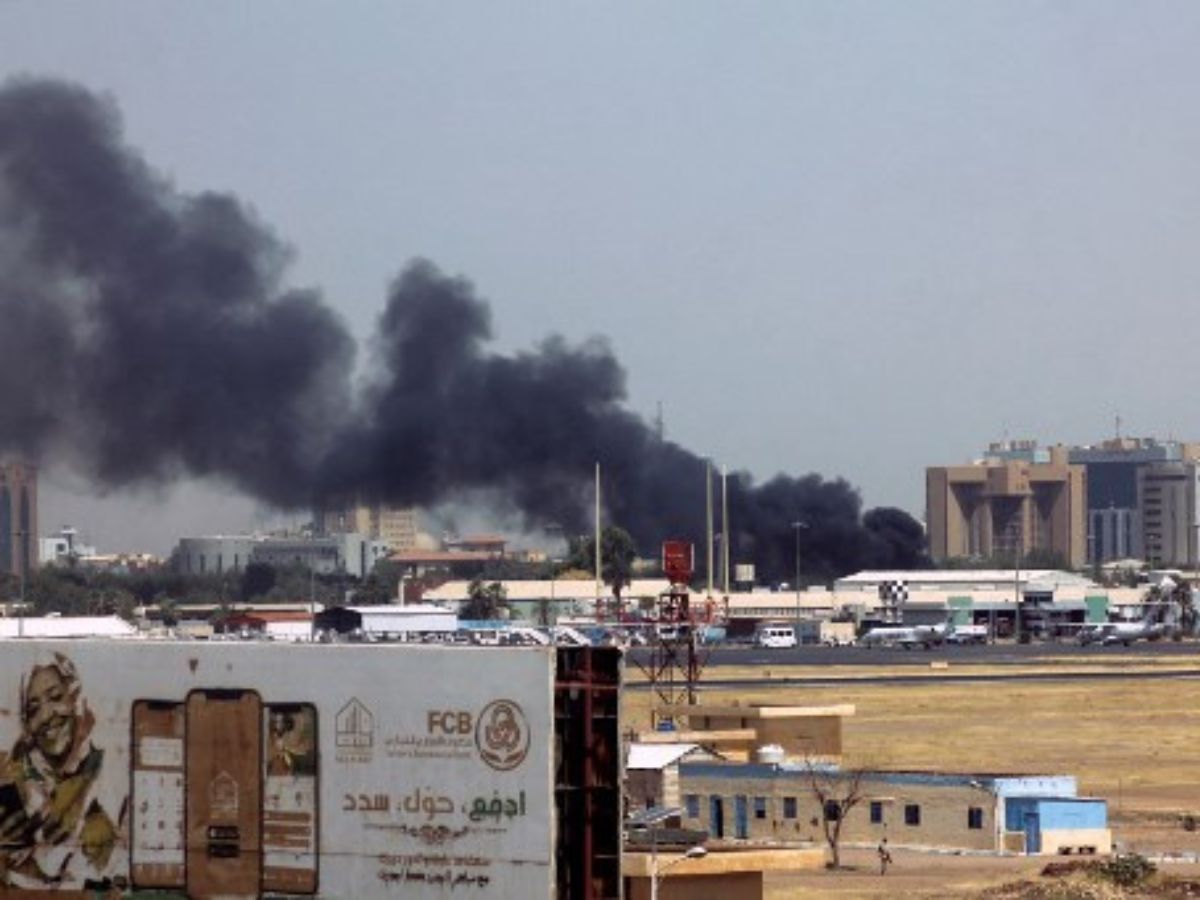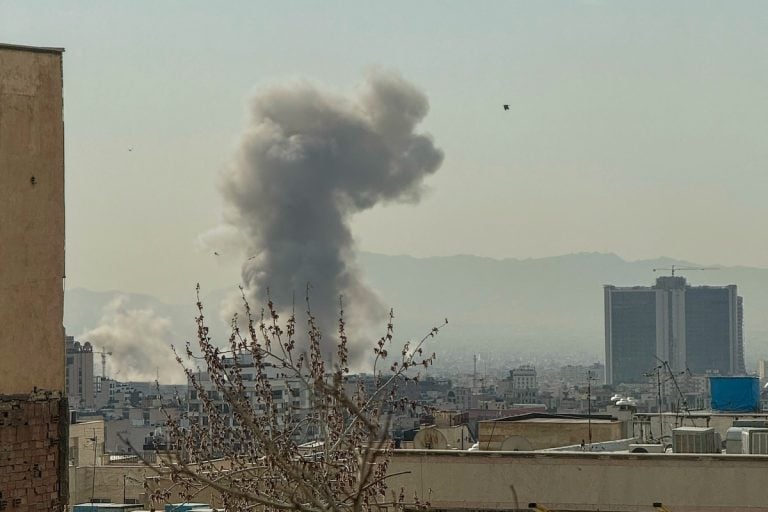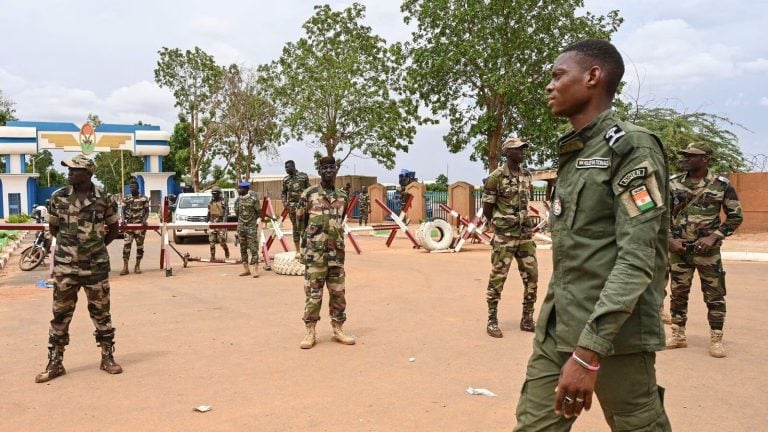The Sudanese military-aligned government has taken a significant step by cutting diplomatic ties with the United Arab Emirates, citing accusations that the UAE has been supplying weapons to the rival paramilitary group Rapid Support Forces (RSF). This diplomatic rift comes amid rising tensions as drone strikes targeted key locations in Port Sudan, including the main port and the only functioning international civilian airport, marking the third consecutive day of attacks on the city—Sudan’s de facto capital.
In a televised address from Port Sudan, army chief and de facto leader General Abdel Fattah al-Burhan emphasized the urgency of the situation, stating, “The hour of retribution will come,” as smoke billowed from fuel depots struck during the drone assaults. The army has labeled the RSF a “proxy” for the UAE, further escalating accusations against the Gulf state, which has consistently denied any involvement in supporting the RSF, despite contrary reports from UN experts and international organizations.
On Tuesday, during a state television address, Defense Minister Yassin Ibrahim declared the UAE an “aggressor state,” a decision that included closing Sudan’s embassy and consulate in the UAE. The backdrop of these developments is a devastating two-year conflict between Sudan’s military and RSF, which has dislodged hundreds of thousands of people. Until recently, Port Sudan served as a refuge for many affected by the violence.
The drone strikes targeted multiple sites, including a military base and a civilian section of Port Sudan airport, forcing the cancellation of flights. The UN’s top official in Port Sudan, Clementine Nkweta-Salami, highlighted the airport’s critical role as a “lifeline for humanitarian operations,” essential for delivering aid and medical supplies to the war-torn nation. As extensive damage to civilian infrastructure ensues, humanitarian crises are anticipated to worsen in a country already facing severe famine conditions.
In the wake of the attacks, residents reported loud explosions and thick smoke rising over the city, with an army source confirming that drone strikes had also taken out the main power substation, plunging Port Sudan into darkness. The conflict has led to immense civilian suffering, with tens of thousands killed and millions displaced.
A separate drone attack was reported in Kassala, where military anti-aircraft fire managed to intercept the threat. As the RSF has increasingly adopted drone technology, the conflict dynamics have shifted significantly, following heavy territorial losses in Khartoum earlier this year.
The violence has been felt even in displacement camps; recent shelling near the Abu Shouk camp in North Darfur left at least six people dead and over 20 injured. The ongoing conflict has effectively divided the nation, with the Sudanese army holding control in the north, center, and east, while the RSF governs nearly all of Darfur and parts of the south.
Adding to the complexity, the International Court of Justice recently dismissed a case brought by Sudan against the UAE, which had accused the Gulf state of complicity in genocide through its support of the RSF. The Sudanese foreign ministry’s respect for the ruling was nuanced, clarifying that it “cannot legally be interpreted as a denial of the violations.”
As the situation continues to escalate, the humanitarian implications grow dire, with the potential for further displacement and suffering affecting an already beleaguered population.







